Jordan Aims To Supply Lebanon With Electricity, As Iran Offers Energy Aid
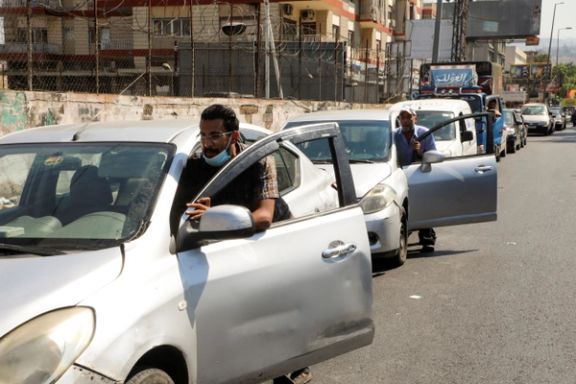
Jordan hopes to start supplying power-starved Lebanon with electricity by the end of the year, its energy minister said on Thursday.

Jordan hopes to start supplying power-starved Lebanon with electricity by the end of the year, its energy minister said on Thursday.
The Lebanese government tries to tackle its crippling energy shortages amid the country's financial meltdown.
Hala Zawati told Sky News Arabia that Lebanon was seeking World Bank financing for the project, part of efforts backed by the United States to address Lebanon's energy crisis.
Under an agreement announced last month, Egypt will supply natural gas to Lebanon via a pipeline that passes through Jordan and Syria to help boost Lebanon's electricity output.
The plan also involves using Egyptian gas to generate electricity in Jordan for transmission to Lebanon via the Syrian power grid.
U.S. senators visiting Lebanon last month said they were seeking ways to address the complicating factor of U.S. sanctions on Syria.
Iranian Foreign Minister Hossein Amir-Abdollahian said in Beirut on Thursday that Iran was ready to build two power plants in Lebanon, one in Beirut and the other in the south of the country, over a period of 18 months.
Iran backs the heavily armed, Lebanese Shi'ite group Hezbollah, deemed a terrorist group by the United States.
"We are completely ready to accomplish this project using the Islamic Republic of Iran's technical expertise, and benefiting from joint Iranian-Lebanese investment," he said, speaking via an Arabic translator.
He did not say who the investors could be. Iran itself is suffering from power shortages.
Reporting by Reuters
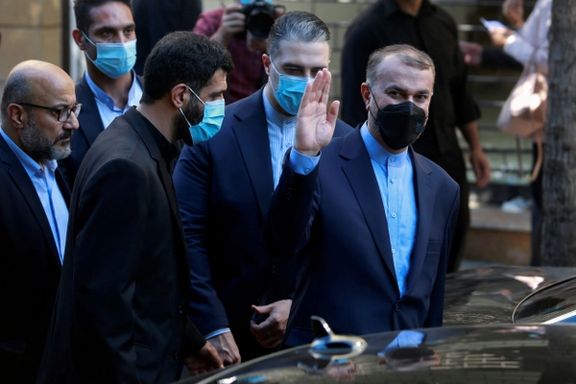
Talks to improve relations between Iran and Saudi Arabia have gone a "good distance", Iran's Foreign Minister told a news conference in Beirut on Thursday.
Hossein Amir-Abdollahian is visiting Lebanon where he promised help to the economically ravaged country.
Iran and Saudi Arabia, the leading Shi'ite and Sunni Muslim powers in the Middle East, have been rivals for years, backing allies fighting proxy wars in Yemen, Syria and elsewhere. They cut diplomatic ties in 2016. Saudi Foreign Minister Prince Faisal bin Farhan confirmed on Sunday that his government had held its first round of direct talks with Iran's new government last month, part of a process begun earlier this year to reduce tensions.
Three rounds of Saudi-Iranian talks were held in Iraq in the months before Iran's new hardline president, Ebrahim Raisi, took office in August.
Prince Faisal said the latest round had taken place on September 21 but did not say where.
The United States and its European and Middle Eastern allies have called on Iran to change its policy of interference in regional countries as part of ongoing nuclear talks with Tehran.
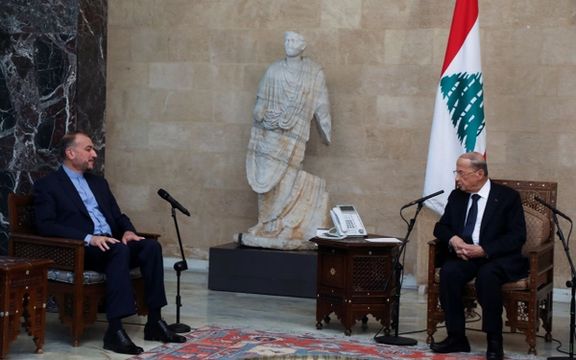
Iran's Hossein Amir-Abdollahian told President Michel Aoun in Beirut Thursday that Tehran would offer any help required by Lebanon, which faces multiple crises.
News agencies of the two countries have so far reported few details of the meeting between Iran’s foreign minister and the president, who leads the mainly-Christian Free Patriotic Movement allied to Hezbollah.
On arrival at Beirut airport Thursday after wrapping up a two-day visit to Moscow, Amir-Abollahian told Iranian state television (IRIB) that Tehran Iran had "better and newer propositions for breaking Lebanon's economic siege."
He said his trip was “indicative of deep and friendly ties between the two countries, and we support Lebanon’s army, people, and resistance with a strong voice.”
The Iranian foreign minister also met with parliament speaker Nabih Berri, leader of the mainly Shia Amal party, and is scheduled to meet Prime Minister Najib Mikati, Foreign Minister Abdullah Bou Habib, and representatives of Palestinian groups.
On Monday Hezbollah Secretary-General Hassan Nasrallah said third and fourth consignments of fuel were on their way to Lebanon.
“Paperwork has been done for the dispatch of the third gasoline-laden ship from Iran,” he said in a speech. “The fourth ship will bear diesel and will be sent over subsequently.”
Lebanon faces chronic shortages of petrol and diesel – the latter used for electricity generation by hospitals, apartments and other buildings – as the Lebanese pound has collapsed against the dollar, plunging around 80 percent of the population into poverty.
The United States has been enforcing sanctions against Lebanon for more than a year to pressure the country to curb political and military influence of Hezbollah, which is well represented in the Lebanese parliament and allied to Tehran. These sanctions have compounded the country’s economic problems.
Iranian officials say fuel bound for Lebanon was purchased by Lebanese Shiite merchants but have not explained how payment – which would contravene US sanctions against Iran – might be made. Vessels from Iran deliver the fuel to Syria from where it is delivered to Lebanon by trucks.
A third tanker carrying fuel arrived in the Syrian port city of Baniyas Wednesday. The first convoy of fuel trucks entered Lebanon on September 16. It is not clear how much of the fuel has been transported to Lebanon by land so far for which thousands of trips are required.
On Tuesday Shabab Hezbollah, a pro-Hezbollah social media Twitter account, reported that a convoy of around 60 trucks, the tenth such convoy, had entered Lebanon from Syria.
The initiative, which Hezbollah said had broken an "American siege" irritated some factions in Lebanon that said the party had not sought the government's approval for importing fuel from Iran. Hezbollah's opponents accused the group of undermining state authority and exposing Lebanon to the risk of further US sanctions.
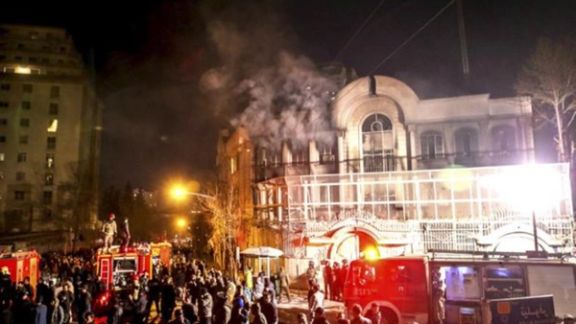
Arabic Post claims Saudi Arabia and Iran are well into preparations for the mutual reopening of embassies and consulates, which have been closed since 2016.
The London-based news site cited an “Iraqi diplomatic source” and “Iranian sources.” The latter, said Arabic Post, claimed Saudi Arabia had sent a team to Iran to renovate and update security and technical systems in its Tehran embassy and Mashhad consulate, and that Iran had sent a security delegation to prepare its Riyadh embassy and Jeddah consulate to for re-opening.
Arabic Post also claimed its Iranian sources had confirmed that managing talks with Saudi Arabia had been transferred from the foreign ministry to the Supreme National Security Council and its secretary, Ali Shamkhani.
Riyadh closed its embassy and cut diplomatic ties with Iran in 2016 after protestors stormed the Saudi embassy in Tehran in protest at the Saudis executing 47 dissidents including leading Shi'ite cleric Sheikh Nimr al-Nimr.
Foreign Ministry Spokesman Saeed Khatibzadeh declined to confirm Monday that a Saudi delegation would be visiting Tehran to prepare the embassy.
4th round of talks
Saudi Arabia announced Sunday it had held September 21 its direct talks with the new government of President Ebrahim Raisi (Raeesi). This was the fourth round of Iraqi-brokered talks that began in Baghdad in April as Iran also opened talks with world powers in Vienna over reviving its 2015 nuclear deal, the JCPOA (Joint Comprehensive Plan of Action) from which the US withdrew in 2018.
In a press conference in Riyadh with European Union foreign policy chief Josep Borrell October, Saudi Foreign Minister Prince Faisal bin Farhan al-Saud said discussions were at an exploratory stage: “We hope they will provide a basis to address unresolved issues between the two sides and we will strive and work to realize that.”
Prince Faisal reiterated Saudi concerns over Iran’s "transgressions" in its nuclear program. Iran in turn called for Riyadh to open its nuclear sites to full inspections by the International Atomic Energy Agency (IAEA).
Iran has not commented specifically on the latest round of meetings, although the spokesman Khatibzadeh described talks with Saudi Arabia as "optimal" Monday and said neither side had set preconditions.
Raisi priority
Raisi and his foreign policy team have several times emphasized a priority in improving relations with regional countries. The challenge with Saudi Arabia lies in overcoming rivalries in Iraq, Syria, Lebanon, and Yemen, where Riyadh and Tehran are allied with rival or warring parties. Official of both countries have recently cautiously expressed optimism over normalizing diplomatic relations.
Several world powers have welcomed Saudi-Iran talks. Riyadh this year became a dialogue partner of the Shanghai Cooperation Organization, which Tehran is now joining as a full member. While allied with Iran in supporting Syria’s President Bashar al-Assad, Russia has recently reached a military agreement with Saudi Arabia, while China is a major oil customer of both Iran and Saudi Arabia.
The US Special Envoy for Iran Robert Malley tweeted Monday welcoming Saudi Arabia’s “announcement of direct talks” with Iran, expressing hope that dialogue would “contribute to de-escalation of tensions & address long-standing regional concerns,” and suggesting “full, mutual return [of Iran and the US] to JCPOA would support these regional efforts.”
The British Ambassador to Iraq, Mark Bryson, in a meeting with Iraqi National Security Adviser Qassem al-Araji Tuesday said London welcomed the dialogue and expressed hope it would expand to include all regional countries.
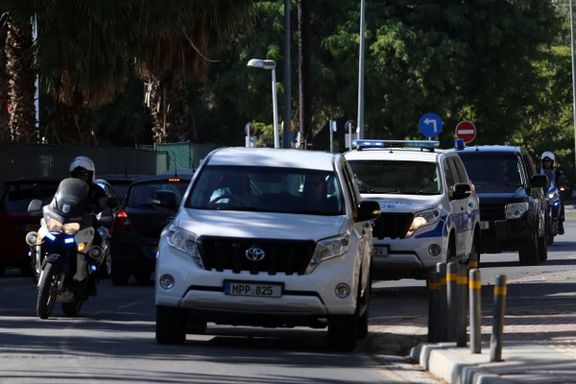
A court in Cyprus on Wednesday extended the detention of a man that Israel alleges was a would-be assassin recruited by Iran to attack Israeli businesspeople.
The man was arrested in the Cypriot capital Nicosia on Sept. 27. Police say that when he was intercepted a pistol with a silencer were found in his rental vehicle.
Israel said it was a "terrorist incident directed by Iran" against Israelis on the island, a charge dismissed as "baseless" by the Iranian embassy in Nicosia.
Police have been tight-lipped about the incident. The suspect was taken to a district court in Nicosia on Wednesday, where the order remanding him in custody was extended until Monday.
The suspect has not been charged and officials have not identified him, beyond describing him as an ethnic Azeri with a Russian passport.
"Investigations are proceeding at a rapid pace," police spokesman Christos Andreou told state TV. He declined to comment on the Israeli claims, citing the ongoing investigation.
Cyprus's authoritative Phileleftheros daily said the suspect, thought to have arrived in Cyprus 20 days prior to his arrest, was not cooperating with police.
On Tuesday the suspect indicated to police where he had rented two cars, from the resort town of Ayia Napa in the south-east of the island.
Police have not traced where the suspect was staying prior to his arrest, the newspaper said. Authorities believe he may have been staying in the Turkish-held north of the ethnically split island, it said.
Report by Reuters
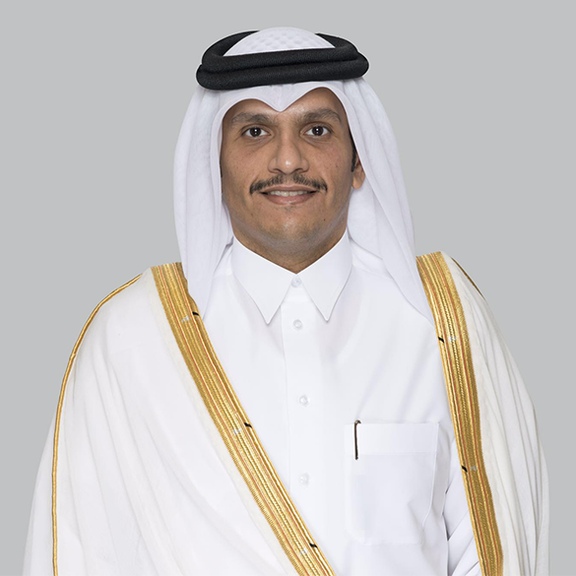
Qatar's foreign minister visited the United Arab Emirates (UAE) as the two Gulf states work on improving bilateral ties after years of a bitter rivalry.
Sheikh Mohammed bin Abdulrahman Al-Thani was received by the UAE's de facto ruler Sheikh Mohamed bin Zayed Al-Nahyan in Abu Dhabi and discussed "ways to enhance them (ties) to serve the interests of their nations", state news agency WAM said.
Wednesday's meeting followed a similar visit in August by Sheikh Tahnoun bin Zayed al-Nayhan, UAE's National Security Adviser and a brother of Sheikh Mohamed, to Doha where he met with Qatar's emir.
Saudi Arabia, the UAE, Bahrain and Egypt agreed in January to end the dispute that had led them to sever ties with Qatar in 2017 over accusations that Doha supported "terrorism" - a reference to Islamist groups. Doha denied the charges.
Riyadh and Cairo have led efforts to mend ties and appointed ambassadors to Qatar, while Abu Dhabi and Manama have yet to do so. All but Bahrain have restored travel and trade links.
The Gulf states have been pursuing a more moderate approach to defuse regional tensions, including with their rivals Iran and Turkey, as the United States reduced its military power in the Middle East. Saudi Arabia and the UAE rely heavily on Washington for their security.
Report by Reuters